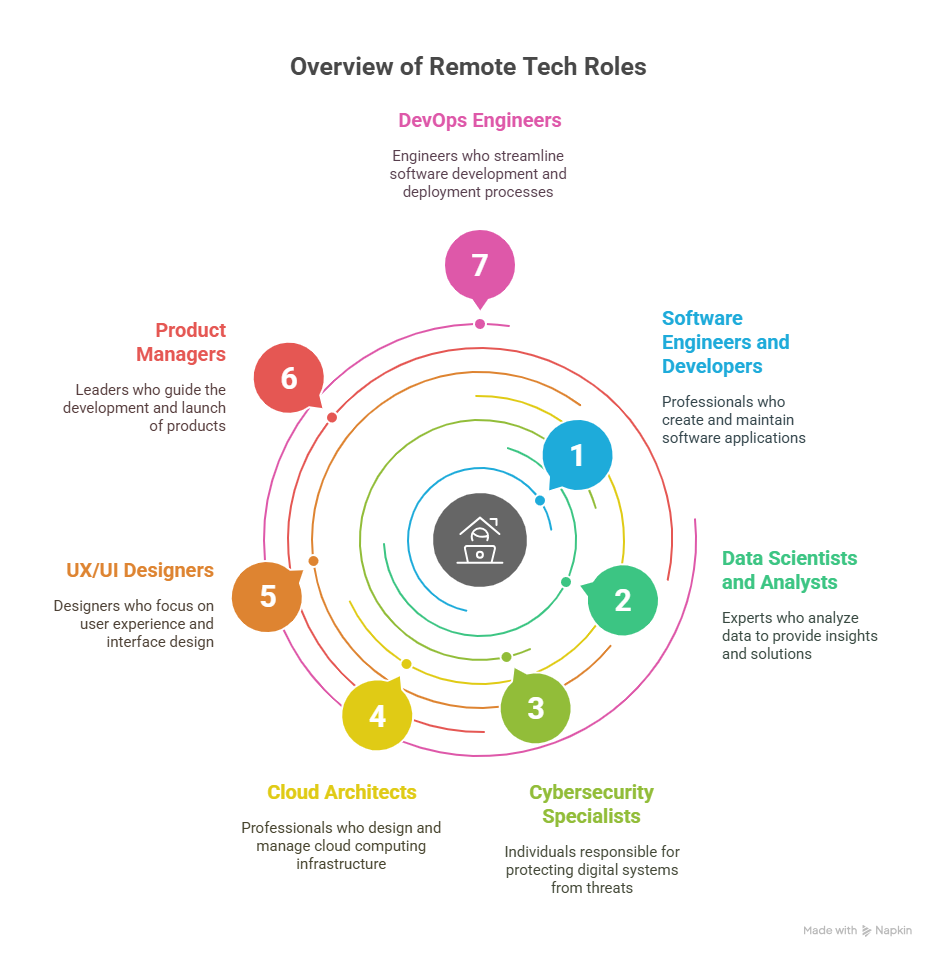Remote Work and Hybrid Jobs: The New Normal – Navigating the Future of Work
The traditional 9-to-5 office environment has undergone a dramatic transformation in recent years. What was once considered an unconventional work arrangement has rapidly evolved into the new standard for millions of professionals worldwide. Remote work and hybrid job opportunities have not only become mainstream but are increasingly viewed as essential components of modern employment packages.
This shift represents more than just a change in where we work – it’s a fundamental reimagining of how work gets done, how teams collaborate, and how organizations structure themselves for success in the digital age. Understanding this new landscape is crucial for job seekers, employees, and employers alike as we navigate the future of work.
The Explosive Growth of Remote and Hybrid Work Opportunities
The Pre-Pandemic Foundation
Even before 2020, remote work was steadily gaining traction. Technology companies led the charge, with organizations like GitLab, Buffer, and Zapier building entirely distributed teams. Freelancing platforms and the gig economy had already demonstrated that productive work could happen anywhere with an internet connection.
However, remote work remained relatively niche, with only about 5% of the workforce working remotely full-time prior to the global pandemic. Many organizations viewed remote work with skepticism, concerned about productivity, collaboration, and company culture.
The Pandemic Acceleration
The events of 2020 forced the largest work-from-home experiment in history. Almost overnight, millions of employees transitioned to remote work, and organizations that had never considered flexible work arrangements were compelled to adapt rapidly.
This mass transition proved that remote work was not only possible but often more productive than traditional office environments. Employees reported higher job satisfaction, better work-life balance, and increased productivity when working from home.
Current Market Statistics
Today’s job market reflects this permanent shift in work preferences and organizational structures. Recent surveys indicate that over 35% of jobs now offer some form of remote work option, with fully remote positions accounting for approximately 15% of all job postings. Hybrid arrangements, where employees split time between home and office, have become the most popular model, representing nearly 25% of available positions.
The demand from job seekers is equally compelling. Studies show that 87% of workers would choose a remote or hybrid position when given the option, and 76% of employees say they would quit their current job if their employer eliminated flexible work arrangements.
Long-Term Projections
Industry experts predict that remote and hybrid work options will continue expanding. By 2025, analysts estimate that up to 50% of jobs will offer some form of location flexibility. This growth is driven by competitive talent acquisition, cost savings for employers, and demonstrated productivity gains from distributed teams.
Organizations are increasingly recognizing that offering flexible work arrangements is no longer a perk but a necessity for attracting and retaining top talent in a competitive market.
Sectors Leading the Remote Work Revolution
Technology and Software Development
The technology sector remains the pioneer and largest adopter of remote work practices. Software development, cybersecurity, data analysis, and IT support roles are particularly well-suited to remote work due to their digital nature and project-based deliverables.
Major tech companies like Twitter, Shopify, and Coinbase have announced permanent remote work policies, while others like Google and Microsoft have implemented hybrid models that give employees flexibility in where they work.
Common Remote Tech Roles:
- Software Engineers and Developers
- Data Scientists and Analysts
- Cybersecurity Specialists
- Cloud Architects
- UX/UI Designers
- Product Managers
- DevOps Engineers

Digital Marketing and Communications
The marketing industry has embraced remote work extensively, particularly in digital marketing roles that rely heavily on online tools and platforms. Content creation, social media management, and digital advertising can be effectively managed from anywhere.
Remote Marketing Opportunities:
- Content Marketing Managers
- SEO Specialists
- Social Media Managers
- Digital Advertising Specialists
- Email Marketing Coordinators
- Marketing Analysts
- Brand Strategists
Finance and Accounting
Financial services have discovered that many accounting, analysis, and advisory functions can be performed remotely with proper security measures in place. Cloud-based accounting software and secure VPN connections enable financial professionals to work effectively from home.
Remote Finance Roles:
- Financial Analysts
- Accountants and Bookkeepers
- Tax Preparers
- Financial Advisors
- Budget Analysts
- Audit Specialists
- Investment Researchers
Customer Service and Support
Customer service roles have transitioned smoothly to remote work, with many companies finding that home-based agents often provide better service due to reduced distractions and improved work-life balance.
Remote Customer Service Positions:
- Customer Service Representatives
- Technical Support Specialists
- Account Managers
- Sales Development Representatives
- Client Success Managers
- Help Desk Technicians
Education and Training
The education sector has rapidly adopted remote and hybrid models, creating new opportunities for online educators, instructional designers, and educational technology specialists.
Remote Education Opportunities:
- Online Teachers and Tutors
- Instructional Designers
- Educational Content Creators
- E-learning Specialists
- Training and Development Managers
- Academic Advisors
Healthcare and Telemedicine
Healthcare has seen significant growth in remote opportunities, particularly in telemedicine, mental health services, and healthcare administration roles.
Remote Healthcare Roles:
- Telemedicine Physicians
- Mental Health Counselors
- Medical Coders
- Healthcare Administrators
- Health Information Technicians
- Remote Nurses (triage and consultation)
Strategies for Excelling in Remote Work Environments
Creating an Effective Home Office Setup
Your physical workspace significantly impacts your productivity and professional presentation. Invest in a dedicated workspace that minimizes distractions and supports your work requirements.
Essential Setup Components:
- Reliable, high-speed internet connection
- Comfortable, ergonomic chair and desk
- Good lighting, preferably natural light supplemented by task lighting
- Quiet environment or noise-canceling headphones
- Professional background for video calls
- Backup power solutions for critical work periods
Mastering Time Management and Self-Discipline
Remote work requires exceptional self-management skills. Without the structure of a traditional office environment, you must create your own systems for staying productive and focused.
Effective Time Management Strategies:
- Establish consistent daily routines and work schedules
- Use time-blocking techniques to allocate specific hours for different tasks
- Implement the Pomodoro Technique for focused work sessions
- Set clear boundaries between work and personal time
- Create accountability systems through goal-setting and progress tracking
Communication Excellence
Remote work places a premium on clear, proactive communication. You must be more intentional about keeping colleagues informed and maintaining strong working relationships without face-to-face interaction.
Communication Best Practices:
- Over-communicate rather than under-communicate project status and availability
- Use video calls for important discussions to maintain personal connection
- Respond promptly to messages and emails during business hours
- Establish communication preferences and response times with your team
- Document important decisions and conversations for future reference
Building and Maintaining Professional Relationships
Creating meaningful connections with colleagues and maintaining company culture requires extra effort in remote environments.
Relationship Building Strategies:
- Participate actively in virtual team meetings and social events
- Schedule regular one-on-one check-ins with managers and colleagues
- Use informal communication channels to maintain casual interactions
- Offer help and support to teammates when possible
- Celebrate team achievements and milestones virtually
Continuous Learning and Skill Development
Remote workers must be proactive about professional development since they may have fewer opportunities for informal learning and mentorship.
Professional Development Approaches:
- Enroll in online courses and certifications relevant to your role
- Attend virtual conferences and industry webinars
- Join professional online communities and discussion groups
- Seek virtual mentorship opportunities
- Regular self-assessment and skill gap analysis
Essential Tools and Skills for Remote Work Success
Core Technology Skills
Modern remote work requires proficiency with various digital tools and platforms. Developing these technical competencies is crucial for remote work success.
Fundamental Technical Proficiencies:
- Video conferencing platforms (Zoom, Microsoft Teams, Google Meet)
- Cloud storage and file sharing (Google Drive, Dropbox, OneDrive)
- Project management tools (Asana, Trello, Monday.com, Jira)
- Communication platforms (Slack, Microsoft Teams, Discord)
- Time tracking and productivity apps (RescueTime, Toggl, Clockify)
- Basic troubleshooting for common technical issues
Communication and Collaboration Tools
Video Conferencing Mastery Beyond basic usage, develop skills in advanced features like screen sharing, breakout rooms, recording meetings, and managing large group discussions. Learn proper video call etiquette and how to present effectively in virtual settings.
Asynchronous Communication Master the art of clear, concise written communication through emails, messaging platforms, and project management tools. Learn to provide context, ask specific questions, and structure information for easy understanding.
Document Collaboration Become proficient in collaborative editing tools like Google Workspace, Microsoft 365, or Notion. Understand version control, commenting systems, and real-time collaboration features.
Project Management and Organization Skills
Remote work often requires greater independence in managing projects and deadlines. Develop strong organizational systems that work in digital environments.
Key Organizational Competencies:
- Digital task management and prioritization
- Deadline tracking and milestone planning
- Resource allocation and capacity planning
- Risk identification and mitigation strategies
- Progress reporting and stakeholder communication
Cybersecurity Awareness
Working from home creates additional security responsibilities. Develop understanding of cybersecurity best practices to protect both personal and company data.
Security Essentials:
- VPN usage and secure network connections
- Password management and two-factor authentication
- Secure file sharing and data handling
- Recognition of phishing and social engineering attempts
- Regular software updates and security patches
- Backup strategies for important work data
Soft Skills for Remote Success
Self-Motivation and Discipline Develop internal motivation systems that don’t rely on external supervision. Create personal accountability measures and maintain consistent work habits without direct oversight.
Adaptability and Problem-Solving Remote work environments change rapidly, and technical issues are inevitable. Build resilience and creative problem-solving skills to handle unexpected challenges independently.
Emotional Intelligence Remote communication lacks many non-verbal cues, making emotional intelligence even more important. Develop skills in reading virtual communication signals and managing relationships through digital channels.
Preparing for the Remote Work Job Search
Tailoring Your Resume for Remote Positions
Highlight experiences and skills that demonstrate your ability to work independently and manage remote responsibilities. Include specific examples of successful remote projects, virtual team collaboration, and technology proficiencies.
Remote-Relevant Resume Elements:
- Remote work experience, even if part-time or project-based
- Self-directed project achievements
- Technology tool proficiencies
- Cross-timezone collaboration experience
- Online communication and presentation skills
Interview Preparation for Remote Positions
Remote job interviews often focus heavily on your ability to work independently and maintain productivity without direct supervision.
Common Remote Interview Questions:
- How do you maintain productivity when working from home?
- Describe your home office setup and work environment
- How do you handle isolation and maintain team connections?
- What strategies do you use for time management and organization?
- Tell me about a challenging remote project you managed successfully
Demonstrating Remote Work Readiness
Provide concrete examples of your remote work capabilities through portfolios, references, and specific achievement metrics from previous remote or independent work experiences.
The Future of Remote and Hybrid Work
Emerging Trends and Technologies
The remote work landscape continues evolving with new technologies and work models. Virtual reality meetings, AI-powered productivity tools, and advanced collaboration platforms are reshaping how distributed teams operate.
Technology Innovations:
- Virtual and augmented reality collaboration spaces
- AI-powered scheduling and productivity optimization
- Advanced project management and workflow automation
- Enhanced cybersecurity solutions for distributed teams
- Biometric wellness and productivity monitoring tools
Evolving Organizational Structures
Companies are restructuring themselves to optimize for distributed work, creating new roles like “Head of Remote” and implementing policies specifically designed for hybrid teams.
Global Talent Access
Remote work is breaking down geographical barriers, allowing companies to access global talent pools and employees to work for organizations anywhere in the world.
Conclusion: Embracing the Remote Work Revolution
Remote and hybrid work opportunities represent more than a temporary shift – they’re a fundamental transformation of how we approach professional life. This new normal offers unprecedented flexibility, expanded job opportunities, and the potential for better work-life integration.
Success in this environment requires developing new skills, embracing technology, and adapting to different ways of building professional relationships and managing productivity. Those who master remote work competencies will find themselves well-positioned for the future job market.
Whether you’re seeking your first remote position or transitioning from traditional office work, the key is to approach remote work with intention, professionalism, and a commitment to continuous learning. The organizations and individuals who excel in this new landscape will be those who embrace change, leverage technology effectively, and maintain focus on results rather than location.
The future of work is flexible, and that future is now. By developing the skills, tools, and mindset needed for remote success, you’re not just adapting to current trends – you’re preparing for a career that can thrive in the evolving world of work.



